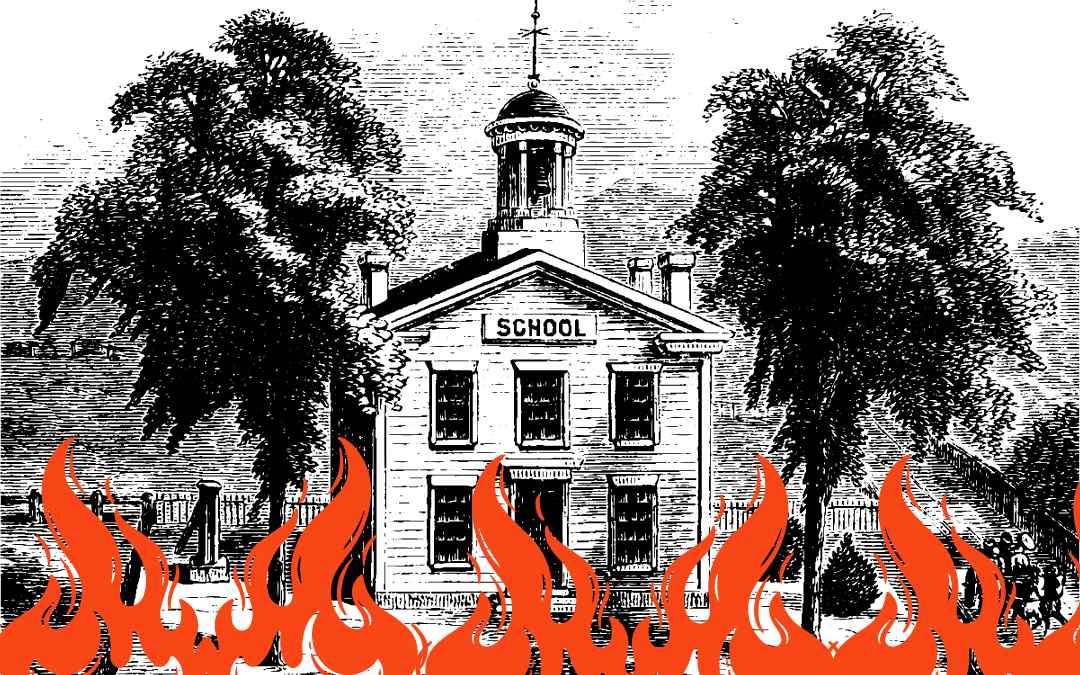Advice from the Secret Handbook of the Head of School at Richard E Rich Academy
Three Types of Parent Whistleblowers
Parents are often critical of their children’s schools. There are often very good reasons for parents to be angry at a school. Most school reform starts with angry parents and it is worth listening to their complaints.
Even when parents are just venting their Fox-fueled racism, homophobia and entitlement, you should be sure to pay careful attention to what is being said. Those parents often want to burn your school down.
Whether their complaints are legitimate or not, three types of parents will criticize their kids’ schools.
Of all the parents you deal with, these three personalities will take up most of your time. For different reasons, each type of parent is willing to go against the group and make trouble.
You have something to learn from each type of whistleblower.
Rich Parents
Wealthy parents have little to lose by fighting their children’s school. Money leads to entitlement, and rich people think they are entitled to the best of everything. The rich parent is used to complaining about the service in restaurants, the amenities in hotels, and the performance of their stockbroker. A school is no different to rich parents than any other service: they expect the best.
Here’s the thing: rich parents often express the anger everyone is feeling but are afraid to express themselves.
Poorer parents have a lot to lose when they criticize their kids’ schools. They can’t easily move schools and they fear losing financial aid. It is much harder for poorer parents to speak out at a private school.
So before you write off the rude rich, take a moment to think about whether their complaints might be justified. It may be that the difficult rude parent is bringing up an important issue.
Perhaps there really is black mold in the gym and maybe there is a chance you could get that angry parent to fund a renovation. Entitled rich people started most of the schools in this country, including Richard E Rich Academy, to gratify and glorify themselves. Don’t let them play you, but make sure they pay full price for their privilege.
Just Plain Nuts
“No excellent soul is exempt from a mixture of madness.” –Aristotle.
The crazy parent who goes up against the school is not usually the one with an official DSM diagnosis and an insurance reimbursement code. If you have clinical depression or schizophrenia, you don’t usually have the energy to launch a campaign against a school.
Instead, the crazy parents who are willing to take on schools are usually JPN: Just Plain Nuts. They have a screw loose, a wild streak, or are just willing to let their flag fly.
The parent who is JPN usually has some symptoms of disinhibition. The feelings that a normal person keeps bottled up, the thoughts a typical person hides, the JPN parent does not hold back. Perhaps a lot of parents knew about the creepy gym teacher but were too afraid to say anything. This is the moment for the JPN parent to shine with a dose of truth-telling.
Throughout history, people who are JPN have changed the course of human life. As Mark Manson puts it in The Surprising Benefits of Being Slightly Crazy, “Humanity needs some source of innovation in order to take a gamble just as much as we need the stability that runs our everyday lives.”
The JPN parent can teach you a lot about what is bubbling below the surface of a school community. Because their thoughts and feelings are closer to the surface, the JPN parent can help you see hidden problems in a school.
Historically, mothers who complained about sexual abuse of children in schools and churches were told they were crazy. Turns out they were right.
On The Spectrum
As the autism spectrum is better understood, it emerges that a key characteristic of people on the spectrum is a preoccupation with justice and honesty.
Autistics are keenly aware of moral issues and studies have shown autistics are less likely to sacrifice morals for their personal gain than neurotypicals. Among the strengths of the autism spectrum is a strong moral compass.
You may not know that the “high masking” autistic parent is on the spectrum, but it is common to have an unconscious recognition of non-neurotypical traits.
The parent on the spectrum may be better able to detect patterns and more likely to value truth over conformity. These traits make for a great school justice fighter, one who can see what’s wrong and speak out.
A parent on the spectrum may have the further advantage of ignoring the social cues and forces of conformity that usually keep good people from standing up to evil.
If you are not on the spectrum yourself, put away any prejudices and try to listen to what the autistic parent is telling you. They may provide you with an important innovation for your school.
As Temple Grandin famously wrote in Thinking In Pictures, “The really social people did not invent the first stone spear. It was probably invented by an Aspie who chipped away at rocks while the other people socialized around the campfire. Without autism traits, we might still be living in caves.”
The autistic drive to collect, codify and organize knowledge is at the heart of the idea of a school. Do not ignore warnings from honest parents on the spectrum, they may understand your school better than you do.
Extra Head of School Tip:
All three of these types of critical parents have a tendency to alienate people. Be aware of this and do not mistake resistance to the truth-teller with disagreement. Other parents usually secretly wish they had the courage to come forward too.
Unfortunately, this applies in the case of the parent with an illegitimate gripe as well.
Sometimes the difficult parent tries to take down a school in the name of hate, intolerance or prejudice. The sad fact is that these destructive parents are bringing to light uncomfortable attitudes that have been kept quiet. For every racist, homophonic parent there are many more who hide their intolerance.
In the case of evil forces fueling parent protests, those parents have everything to teach you about the need for you to speak up and confront what is wrong. Heed the warning and become a whistleblower yourself.

